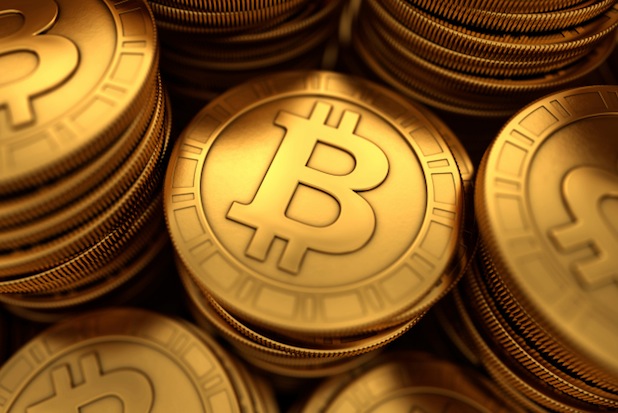These online crypto-currencies have made the financial world more fun. It’s all so gloriously bonkers. First there was Bitcoin, the ‘peer-to-peer’ online payment system founded in 2009. Almost nobody understood how it worked or what a Bitcoin actually was — something to do with chains of code, computer ‘mining’, and a ledger system — but that didn’t stop anti-government types everywhere embracing the idea. A decentralised currency that politicians and bankers cannot manipulate and spoil — what’s not to like?
Following Bitcoin, all sorts of junior crypto-currencies have popped up, mushroom-like, across the web. There’s litecoin, namecoin, novacoin, worldcoin, quarkcoin, feathercoin, alphacoin to name only several out of thousands. Are they the future of money, or just a series of Ponzi schemes? Nobody knows. The fun part is trying to figure where — if anywhere — the libertarian gobbledygook ends and the value begins.
For would-be speculators, the sensible advice is to be very sceptical. Crypto-currencies have been called the ‘new wild west’, and it’s easy to see why. Digital coins soar and crash in value, appear and disappear, on the whim of crowds or for no discernible reason. Sophisticated hackers will always be a thousand clicks ahead of the average punter. Every new crypto-currency that comes along claims to be safer than the last, but because they are beyond state control, there is usually no legal recourse if you find your digital dosh has been swiped overnight.
The whole ‘crypto space’, as analysts call it, is alarmingly anonymous: there’s a trading website, www.mcxnow.com — ‘Join the investment class today and leave behind your wage slave lifestyle now!’ — which has ‘rich list’ tables purporting to show the 25 biggest holders of various crypto-currencies. But who are they? Again, nobody knows. Every listed investor has called himself ‘???’.
On the other hand, any clown can claim to have discovered the next big ‘store of value’. My favourite crypto-moolah is Maxcoin, named after and promoted by Max Keiser, the eccentric TV money expert who works for Russia Today. His show, The Keiser Report, is turning into a sort of apocalyptic version of the shopping channel. In an episode aired on 15 April, Max raved about western debt and ‘banksters’, as is his wont, then spent the second half of the show plugging Maxcoins and another Max-associated crowd-funding venture called StartJoin.
You can’t blame him — crypto-pioneers have to promote their currency to make it viable. Financial hacks and bloggers are given freebie coins, so be suspicious of any article that evangelises one particular currency. (For the record: I ain’t got no crypto-funds, though I am open to offers.)
It won’t do to be too cynical though. Something big is happening to money online, and the crypto phenomenon might just be the start. You don’t have to be a conspiracy nut to have lost faith in central banking, given the gargantuan levels of quantitative easing propping up the global economy, so it’s quite understandable that people are attracted to alternative financial systems, no matter how kooky.
Bitcoin has proved more resilient than its critics expected. Yes, it is volatile — its price has fallen from around $1,200 in 2013 to under $400 last month — but as a medium of exchange it is increasingly useful. It’s becoming easier and safer to buy Bitcoins with old-fashioned fiat money. More and more businesses accept Bitcoins, and it is seen as an efficient way of moving money around the world — better than a fee-charging service such as Western Union.
Moreover, all the newer, less mature and more flagrantly speculative crypto-currencies have started to lend Bitcoin, as the leader of the field, an air of credibility. Give me a Bitcoin over 500 novacoins, even if I still haven’t a clue how it was ‘mined’ and what use it is to me.
The post Crypto-mania appeared first on The Spectator.
Got something to add? Join the discussion and comment below.
Get 10 issues for just $10
Subscribe to The Spectator Australia today for the next 10 magazine issues, plus full online access, for just $10.














Comments
Don't miss out
Join the conversation with other Spectator Australia readers. Subscribe to leave a comment.
SUBSCRIBEAlready a subscriber? Log in